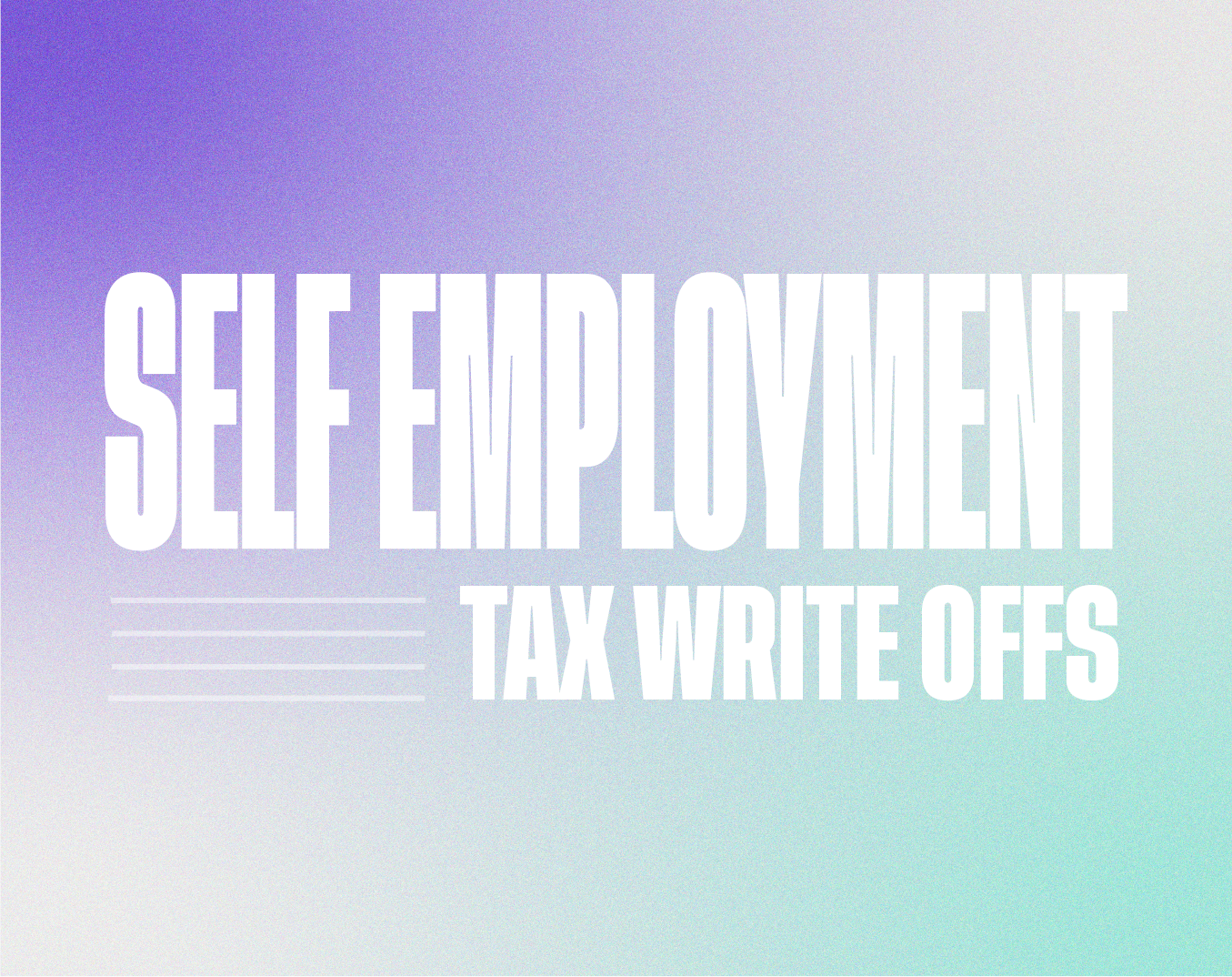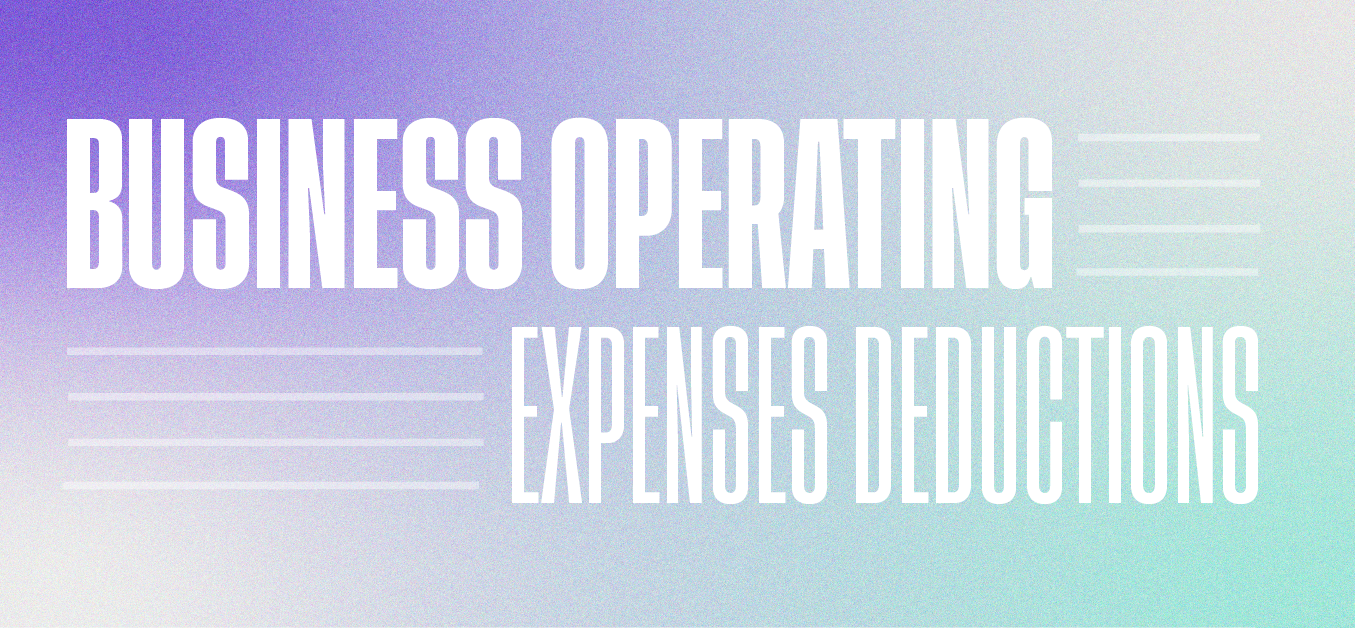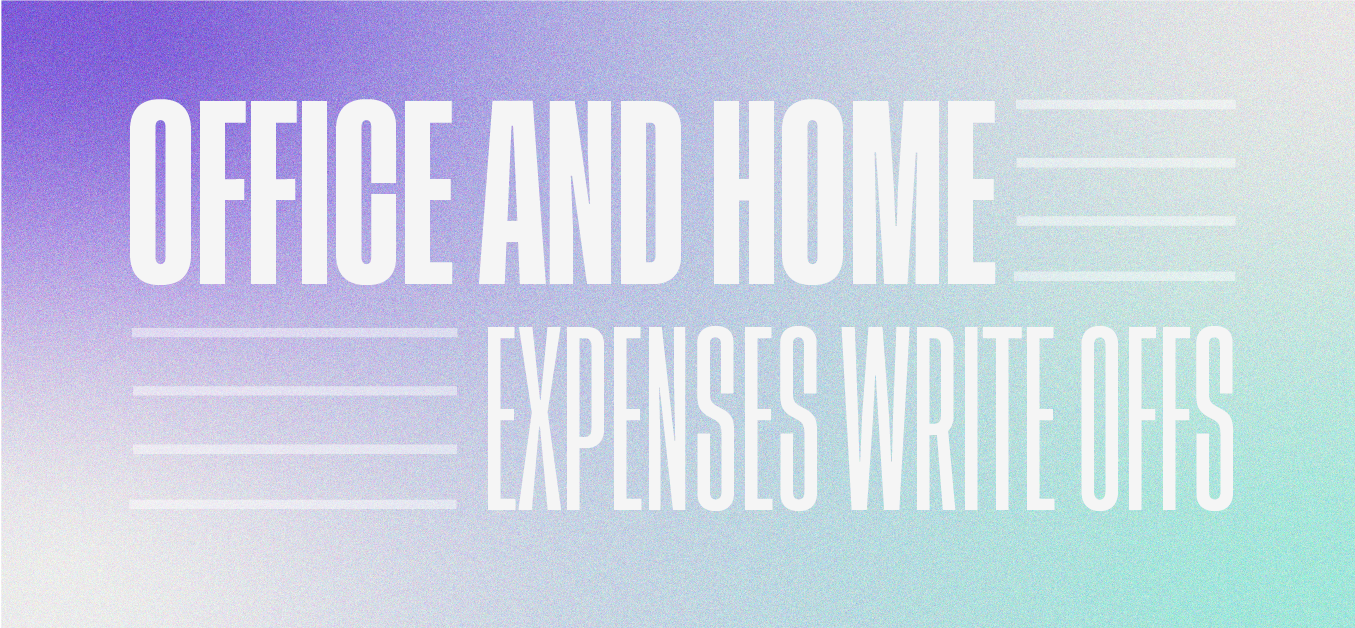Self Employed Tax Write Offs (And How They Save You Money)
Another year, another tax season.
Another springtime during which your non-self-employed pals run a single T4 through a free tax software and click ‘File.’
Another March and April in which you spend countless hours trying to make sense of your shoebox receipt “filing system”, a task as straightforward as reading tea leaves (read: mythic, and best left to the experts).
Ah, tax season as a self-employed worker. We know ye well. And we hate ye.

In 2020, the number of Canadians earning an income through self-employment grew (more specifically, the number of sole proprietorships and freelance businesses grew). This makes sense: as companies had to lay off or furlough workers, many Canadians pivoted to offer their expertise as a freelancer in their chosen field.
That means there’s probably a lot of folks filing their 2020 income taxes as freelancers for the very first time. Welcome to the club! It sucks here!
There are so many beautiful things about freelancing and self employment that many folks wouldn’t give it up for the world. But, tax season poses some annoying challenges for everyone.
Among them: calculating how much and which expenses you can write off to minimize your taxes owed.
To ease the pain: here are the most common business expenses that you can write off as a self employed worker in Canada.

These are some of the most common tax deductions for self-employed folks, as per our pallies at the CRA.
So we’re on the same page: tax write-offs are deductions you can apply to your earned income to lessen how much you’ll pay on your income tax. For example, if you earn $100, and you’re able to deduct $20, you will only pay tax on the remaining $80. Don’t let a deduction pass you by!

You can write off a portion of just about everything you require to run your business, including office supplies, utilities, and phone or internet bills. Just add up the total cost and report it on your income taxes as deductions.
But operating write offs also extend beyond the walls of the office. You can also deduct values like:
- 50% of the cost of meals and entertainment (only business related!)
- Advertising related costs
- Insurance fees
- Bank interest and charges, and
- Legal and accounting fees
Every time you make a purchase to support the functioning of your business, keep your receipt. Specify your reason for purchase—you’ll need this info if you are audited. Put it in your shoe box, and keep a running tally of all expenses accrued through the year.
Is this tedious? YES. Will it save you money? ALSO YES. So do it. :)

We all need a place to work! Even if your chosen office is your perennially unmade bed, the cost of the place from which you do business is eligible for tax deductions.
If you rent an office, you may be able to deduct the cost of rent and any necessary related costs to running that space. Given how costly rent is in most major cities, this deduction could shelter a good portion of your income. You’ll need to have proof of your rent paid on hand in case of an audit.
If, like many Canadians, you work from home, you may still be eligible for a deduction—though the process of calculating how much you may write off is a bit more complicated.
A self employed WFH deduction can be calculated by figuring out the size of your office as a percentage of the size of your home.
If your office is 100 square feet and your entire home is 1,000 square feet, for example, you may be able to write off 10% of certain mortgage or rent costs, utilities, internet, and business related expenses.
If you work from your living room, calculate the size of the room as a percentage of your total home square footage. Multiply that value by the percentage of each week you spend working there. That’s the percentage of your rent and related bills that you may be able to write off.

If you use your vehicle for work, you may be able to write off all related vehicle expenses, including gas, oil, tune-ups (or whatever you call a doctor’s appointment for cars), and insurance.
If you use your vehicle solely for business purposes, simply deduct 100% of related expenses from your taxable income.
If you also use your vehicle for personal ends, which many folks do, you can only write off the percentage of associated costs that you accrue while using the vehicle for business.
For example, you can’t write off a full tank of gas if you use 5% of it for business and 95% for late night runs to Burger King (or whatever! Pick your vice! We’ve all got ‘em!).
When using your vehicle for business, you should record the number of kilometers you drive. Then, of your total usage, calculate the percentage of time you spend using the vehicle for work. This percentage is the amount of the total costs you can write off.
This isn’t as convoluted as it sounds. Just record when you drive to business meetings, or if you are attending conferences, for example. Keep a little notepad in your glovebox and make note of the date and the distance travelled. Build that habit and you’ll be racking up meaningful deductions.

This section may be wishful thinking. But oh, we dream of a world where conference travel and far away business meetings are once again safe and legal. So this simple deduction has made the list because we are MANIFESTING its applicability.
When you travel for business, you can write off 100% of associated expenses (save for meals, which are only 50% deductible!).
Picture it with us: a conference, a must for your industry, inexplicably scheduled in…. Cabo. No, the Maldives, even. Has anyone ever actually been there? Is it actually even nice? Doesn’t matter.
In a world where COVID-19 is a thing of the past, we wish for you deductions of 50% of your meal expenses at the top of the CN Tower, or Harbour Centre, whichever is taller. Try both! Find out for yourself!
May you deduct the cost of a plane ticket to a glittering, tropical archipelago where, in back to back beach meetings, you sign your biggest clients yet.
And then, when you return, may you file your receipts neatly in your cabinet (be it a shoebox or the real thing), and may you maximize your applicable deductions next tax season with ease.
(The secret to the “ease” thing? Just hire an accountant. Woof.)
The contents of this blog post are provided for informational purposes only and are not intended as personalized tax, accounting or other professional advice. Every situation is unique and you may wish to get advice from a qualified professional regarding your taxes.
Cited
Younger, Jon. “A New Payoneer Report Shows Covid 19 Is Accelerating Freelance Growth.” Forbes, https://www.forbes.com/sites/jonyounger/2020/09/01/a-new-payoneer-report-shows-covid-19-is-accelerating-freelance-growth/. Accessed 29 Mar. 2021.
Canada Revenue Agency. “Self Employed Business, Professional, Commission, Farming, and Fishing Income: Chapter 3 – Expenses,” January 18, 2018. https://www.canada.ca/en/revenue-agency/services/forms-publications/publications/t4002/t4002-5.html.